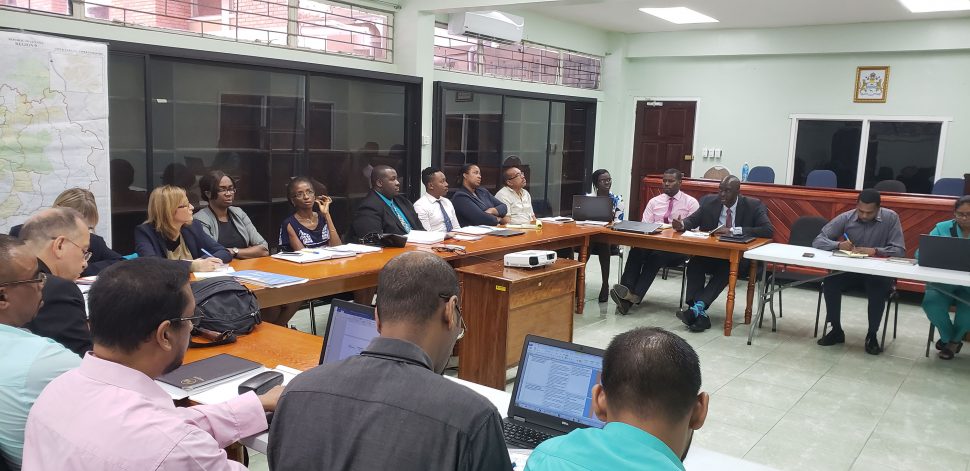The Guyana Lands and Surveys Commission (GLSC) is not impressed with the pace at which the Food and Agriculture Organization (FAO) is implementing the Mainstreaming Sustainable Land Development and Management Project (MSLDM).
According to a statement yesterday from the GLSC, the project, funded by the Guyana REDD+ Investment Fund (GRIF) at a cost of US$14.8 million, was officially launched on January 18, 2018 and is expected to be implemented over a period of four years by the FAO.
A team from the international organization currently in Guyana engaging with the GLSC met with Commissioner and Chief Executive Officer Trevor L. Benn on Monday when he expressed frustration with the slow pace at which work is being conducted.
Noting that this project is extremely important to the Government and People of Guyana, Benn, told the FAO delegation that he is not satisfied with the pace of implementation while stressing that the approach which has been taken so far must be reviewed.
According to the statement he told the FAO representatives he will be looking to see a more collaborative and proactive approach to the project implemented stressing that Guyana is starving for some success stories.
He said currently a number of projects are being implemented in Guyana by international agencies but many of them are not performing to the expectation of the Guyanese people.
“We can’t say with any sense of pride, that we are close to completing these projects, and we cannot add another project to that, I am not prepare to sit here as CEO and watch that happen” Benn was quoted as saying while expressing the hope that the next few days will be used to iron out all existing matters.
Head of the visiting team Sally Bunning, Senior Policy Officer, Agricultural systems, land and water admitted that indeed there were some challenges encountered but promised to work with the GLSC to ensure that the project is successfully implemented.
According to the statement the components of the project include; land reclamation and development, implementation of a land classification system, and other requirements to facilitate optimal land utilization and sustainable land development and management. The project also caters for the development and operationalization of GLSC’s business plan, institutional strengthening of GLSC and capacity development of stakeholders including youth as well as the strengthening of GLSC’s information system and infrastructure for informed decision making and increased education, communication, outreach and public awareness.
Along with Bunning the visiting team includes Vladimir Evtimov, Land administration Officer and Aurelie Bres, Land Tenure and Natural Resources Officer.
While in Guyana, the team is expected to visit several regions and meet with national and regional officials.










